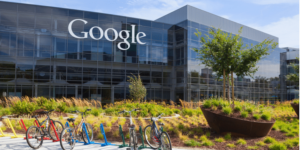Offline distribution in India is a classic two-sided problem between brands and retailers.
“FMCG (fast-moving consumer goods) brands worry about fragmented distributors who are getting weaker, do not have the hunger to grow their business, and lack planning the succession in their family to take forward the business growth to the next level,” Abhishek Nehru, Co-founder, RIPPLR tells YourStory.
But the pandemic brought many changes to the FMCG sector – for the better.
“COVID-19 taught big brands a big lesson on strengthening their distribution network by consolidating the fragmented micro markets and partnering with professional setups that can expand with them across geographies using tech and analytics,” he adds.
According to Abhishek, new entrants, especially D2C challenger brands, find it extremely difficult to expand their offline distribution in the presence of multi-city large professional players. Most D2C brands prefer to remain online rather than spend heavily offline.
Bengaluru-based RIPPLR, launched by Abhishek and Santosh Dabke in 2019, aims to solve the problem of distribution.
The startup offers a plug-n-play integrated distribution platform for all FMCG brands. It is an AI (artificial intelligence) driven full-stack distribution startup that offers distribution-as-a-service (DaaS) to brands, and is building asset-light and tech-enabled distribution networks.
The Bengaluru-based startup is building both digital and offline end-to-end capabilities that aim to enable brands to test their products in the targeted market and scale distribution from hundreds of large format retail stores to thousands of small stores across geographies.
“RIPPLR supports brands to manage and digitise distributor operations, financial and backend operations, creating visibility and a management layer for logistics. With robust end-to-end logistics capabilities, the company delivers an integrated customer experience by elevating certainty and quality for consumers,” co-founder Santosh explains.
RIPPLR has a wide distribution network of 40,000+ retail stores with 17 micro warehouses in eight cities of Bengaluru, Hyderabad, Chennai, Delhi, Pune, Coimbatore, Vijayawada , nd Hubli supported by a logistics network in six metro cities and 30 partner offices.
Its clients currently include brands such as Hindustan Unilever, Dabur, Britannia, Godrej, Reckitt Benckiser, Tata Consumer Products, Nivea, Kimberly Clark, L’Oréal, Colgate, and Licious among others.
The USP
Abhishek says that RIPPLR is building a very unique ‘Uber model’ in the distribution ecosystem by organising the traditional distribution partners, both in urban India and rural Bharat.
The Uber model is a kind of tech platform for distribution partners, helping them to streamline their inventory, warehousing, billing, sales and collections-related issues.
“This Uber model actually complements and does not compete with anyone. It is a first-of-its-kind distribution ecosystem where RIPPLR has already taken a big category leadership,” says Abhishek.
“Our Uberised model is basically a task-based model using AI/ML, helping smaller distribution partners to organise all their distribution-related activities by executing multiple tasks derived by our platform algorithms,” he explains.
“RIPPLR operates on a full-stack model. We buy inventory from the brand and sell it to the retailers while keeping our margins (average margin range of 5 percent to 20 percent),” Santosh adds.
The team
Abhishek and Santosh were introduced to each other through common friends, and both have relevant experience of more than two decades in the distribution and logistics space.
Abhishek has 18 years of experience in IT, ITES and retail operations. He has been instrumental in setting up backend operations in customer service and supply chain management for retail giants like Croma and Flipkart.
He has worked with MNCs including Samsung, EDS, Daimler — managing their IT operations, and Chrysler in the US.
Before co-founding RIPPLR, Abhishek was the CEO of execution for 3PL, as well as helped built Brring Integrated Logistics from scratch to a Rs 50 crore per annum revenue with EBITA positive in 3.5 years.
Santosh brings with him 20+ years of extensive cross-functional experience in organisations including Philips, Whirlpool, Bajaj Tempo, HDFC Bank, and Reliance AMC leading large teams across different regions and zones.
He has handled diverse roles in departments including sourcing, sales and distribution, product innovation, marketing, direct selling, banking, and investments.
“Ripplr is now a 300+ strong team across eight cities. Most of the team members have been with us for the last two years and have helped to manage the phenomenal growth in the last two years,” says Santosh.
Funding and monetisation
Started with an initial investment of Rs 50 lakh, RIPPLR has raised approximately $15 million to date, with plans to raise $30-40 million in the next two quarters.
In December 2021, the startup raised $12 million in a Pre-Series B round. The round was a mix of equity and debt, which saw participation from Japanese conglomerate Sojitz Corporation and Stride Ventures, along with existing investors 3one4 Capital, Zephyr Peacock India Growth Fund, and Chand Family Office – Yukti, supported by eminent early-stage angel investors Vivek Gupta and Abhay Hanjura (Licious founders), as well as Solution Infini (now Kaleyra) Founders Aniketh Jain and Ashish Agarwal.
The startup had earlier closed its Series A round at $3 million in January 2021.
“We are now clocking Rs 600 crore ARR (Annual Recurring Revenue) and are operationally profitable at the city level,” tells Santosh.
The way ahead
According to India Brand Equity Foundation, it is estimated that the current Indian FMCG market size (excluding groceries) is approximately $110 billion and is likely to cross $220 billion by 2025.
“COVID-19 was a big game-changer for us as most brands realised the value of a professional setup to build their distribution strategy for the next two to three decades,” says Abhishek.
“The biggest challenge was to convince brands to partner with us since most of the big brands were used to working with distributors for more than two to three decades. Brands were not very comfortable experimenting with new-age partners like RIPPLR,” he adds.
RIPPLR is present in eight cities across India, with Bengaluru being the base. Currently, 95 percent of its business comes from six cities in south India. The startup is operationally profitable across all the cities where it has a presence.
“Our competitors are traditional small distributors,” Santosh says.
“Ripplr intends to grow its ‘Uber model’ to 100 cities and towns in the next 12 months, and is targeting Rs 2,000 crore ARR. It will be growing organically with all its existing brands across these cities with long-term tie-ups, and will also keep on adding new brands – both domestic and global.
“Our target is to be India’s largest omnichannel partner for all FMCG brands across the globe,” Santosh signs off.










